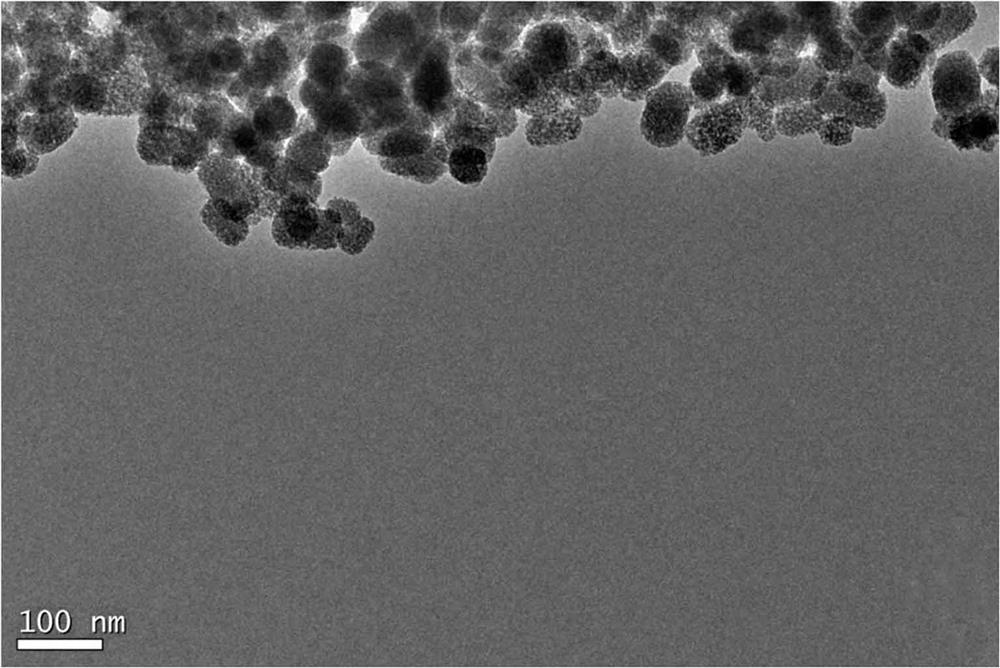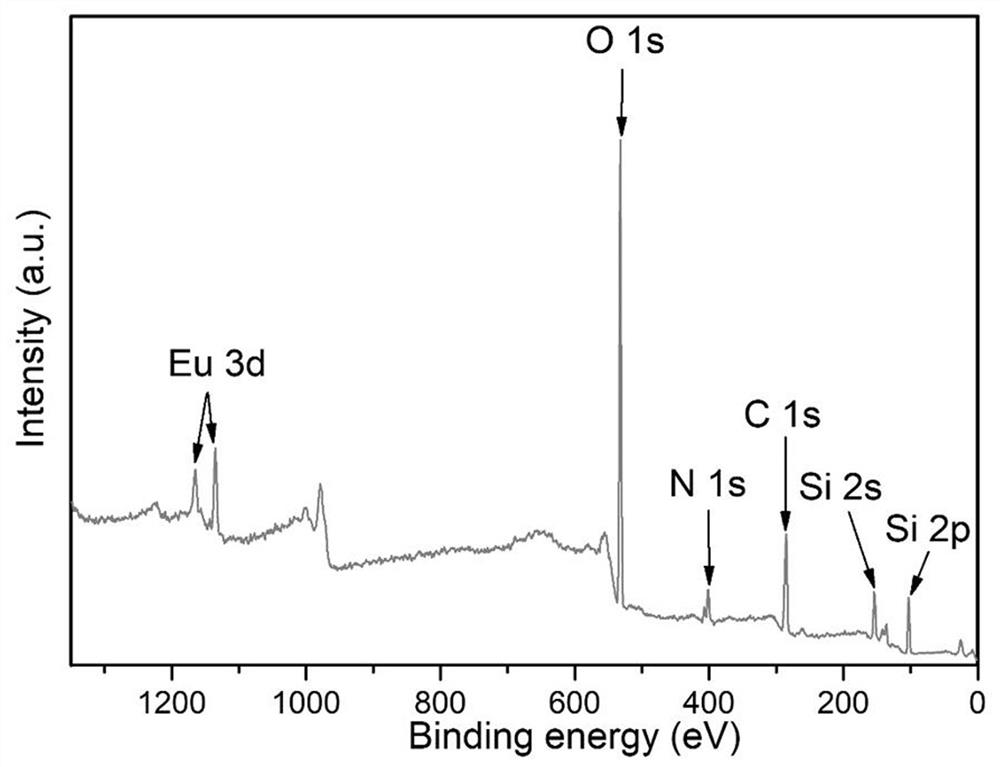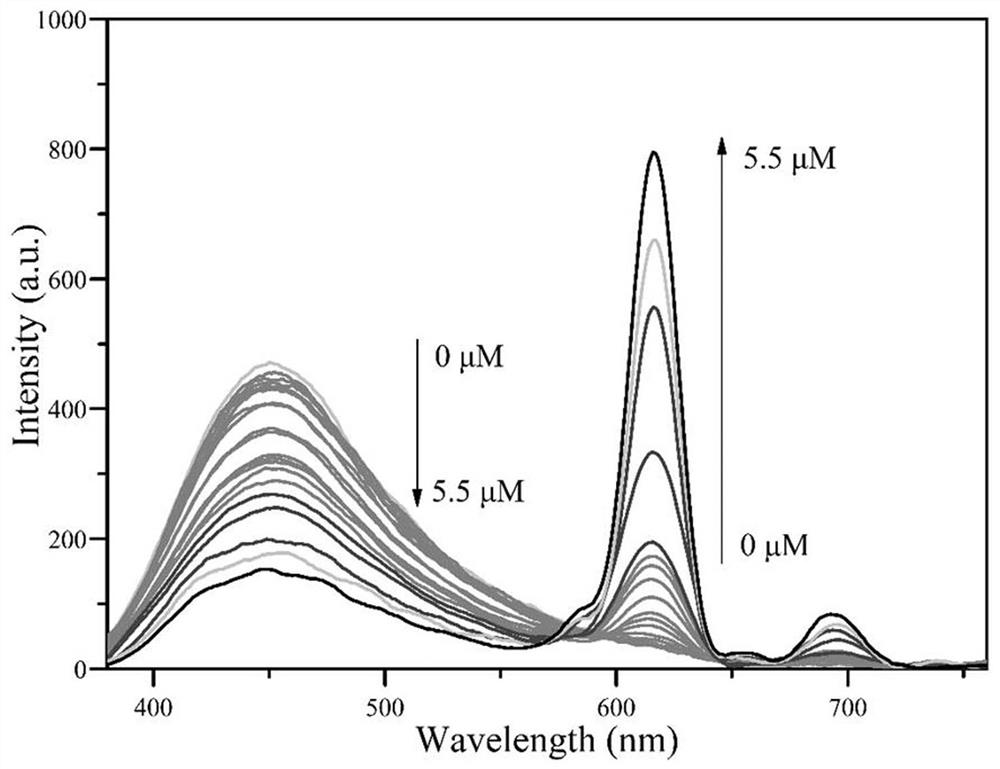Preparation and use method of ratio fluorescent probe for visual distinguishing detection
A ratio fluorescent probe, mass ratio technology, applied in chemical instruments and methods, fluorescence/phosphorescence, analytical materials, etc., can solve problems such as difficult to solve chemical and thermal stability, inability to distinguish tetracycline substances, and limit the scope of practical applications, Achieve the effect of eliminating fluorescence interference, improving detection sensitivity, and mature preparation methods
- Summary
- Abstract
- Description
- Claims
- Application Information
AI Technical Summary
Problems solved by technology
Method used
Image
Examples
Embodiment Construction
[0049] The present invention will be further described below in conjunction with the accompanying drawings and specific embodiments. The schematic embodiments and descriptions of the present invention are used to explain the present invention, but are not intended to limit the present invention.
[0050] Such as Figure 1-6 The shown ratiometric fluorescent probe preparation method for visual discrimination detection includes the following steps:
[0051] step1- Preparation of silicon-based carbon quantum dots (Si-CDs)
[0052] First, measure 20 mL of N-(β-aminoethyl)-γ-aminopropyltrimethoxysilane (AEAPMS) into a 50 mL three-neck flask, condense and reflux under nitrogen protection and heat to 240°C with stirring. Weigh 0.5 g of anhydrous citric acid and grind it to about 100 mesh. The ground anhydrous citric acid was quickly added to AEAPMS at 240 °C, stirred at a speed of more than 600 rpm, heated for 10 min, and then cooled to room temperature naturally. The obtained yel...
PUM
 Login to View More
Login to View More Abstract
Description
Claims
Application Information
 Login to View More
Login to View More - R&D
- Intellectual Property
- Life Sciences
- Materials
- Tech Scout
- Unparalleled Data Quality
- Higher Quality Content
- 60% Fewer Hallucinations
Browse by: Latest US Patents, China's latest patents, Technical Efficacy Thesaurus, Application Domain, Technology Topic, Popular Technical Reports.
© 2025 PatSnap. All rights reserved.Legal|Privacy policy|Modern Slavery Act Transparency Statement|Sitemap|About US| Contact US: help@patsnap.com



